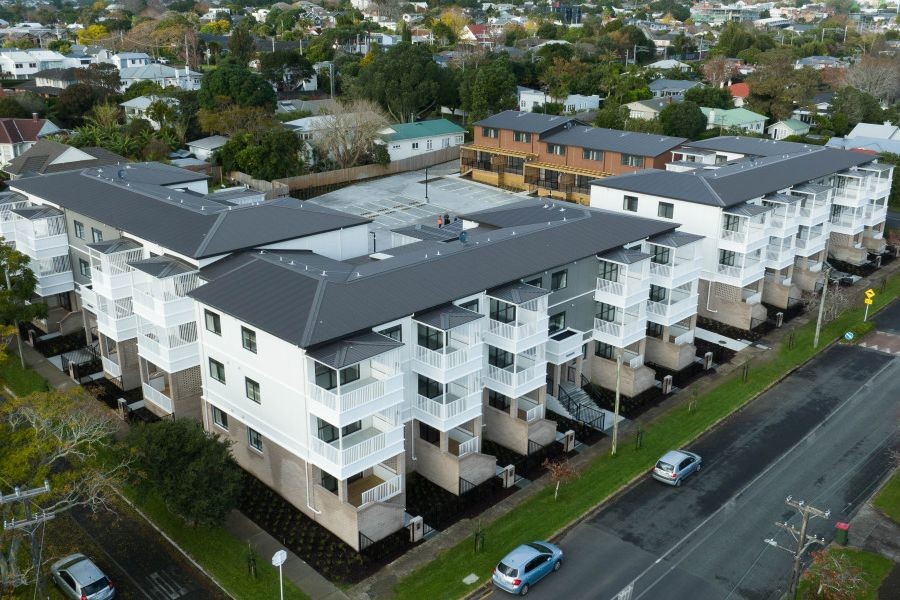Introduction
The allure of commercial property development in New Zealand is undeniable, offering lucrative opportunities amidst a robust economy. However, the journey from conception to completion can be daunting without the right guidance. As of 2023, New Zealand's real estate market has shown resilience, with Stats NZ reporting a 5.2% increase in commercial property transactions over the past year. Yet, a successful project requires more than mere market knowledge; it demands strategic planning, compliance with local regulations, and an understanding of industry trends. This article provides a comprehensive guide for journalists and those interested in exploring the intricacies of building commercial property in New Zealand.
Understanding the New Zealand Commercial Property Market
1. Market Overview and Economic Impact
New Zealand's commercial property market is a critical pillar of its economy, contributing significantly to GDP growth. According to the Ministry of Business, Innovation & Employment (MBIE), the construction sector accounts for around 6% of New Zealand's GDP. The rise of e-commerce and technology startups has fueled demand for office spaces and distribution centers, emphasizing the importance of strategic development locations.
Case Study: Auckland's Innovation Precinct
Problem: Auckland faced a shortage of suitable office spaces for tech companies, stifling innovation and growth.
Action: The city council launched the Innovation Precinct initiative, repurposing old industrial areas into modern office spaces equipped with high-speed internet and collaborative work environments.
Result: The initiative attracted over 50 tech startups, boosting local employment by 20% and increasing the area's economic output by NZD 100 million annually.
Takeaway: Strategic location and infrastructure are crucial in attracting businesses and fostering economic growth.
2. Navigating Regulatory Frameworks
Compliance with New Zealand's regulatory environment is non-negotiable in commercial property development. The Resource Management Act (RMA) governs land use and environmental impacts, necessitating thorough planning and consultation. Developers must engage with local councils to secure resource consents and adhere to zoning laws. The Building Act 2004 further mandates compliance with building standards to ensure safety and sustainability.
Industry Insight: Failing to comply with zoning regulations can lead to costly delays and legal challenges. It's advisable to engage with legal consultants familiar with local bylaws early in the planning process.
3. Financing Your Project
Securing financing is a critical step in commercial property development. New Zealand banks and financial institutions offer various lending options tailored to property development. However, the Reserve Bank of New Zealand's recent tightening of lending criteria requires developers to demonstrate robust financial planning and risk management strategies.
Data Insight: According to the Reserve Bank of NZ, commercial property loans have seen an increase in interest rates by 0.5% in 2023, necessitating careful financial planning to ensure project viability.
4. Choosing the Right Construction Partner
The success of a commercial property project is heavily reliant on the choice of construction partner. It's essential to select a company with a proven track record in delivering projects on time and within budget. Engaging with a construction firm that understands the local market dynamics and regulatory requirements can mitigate risks associated with project delays and budget overruns.
Pros vs. Cons of Local vs. International Construction Firms:
- Pros of Local Firms: Familiarity with local regulations, strong community networks, and quicker response times.
- Cons of Local Firms: Potential limitations in resources and technology compared to larger international firms.
- Pros of International Firms: Access to advanced construction technologies and global expertise.
- Cons of International Firms: Higher costs and potential delays in adapting to local regulations.
5. Embracing Sustainable Building Practices
Sustainability is no longer optional but a necessity in property development. New Zealand is committed to reducing its carbon footprint, and the construction sector plays a pivotal role in achieving this goal. Incorporating sustainable building practices, such as using eco-friendly materials and energy-efficient designs, not only aligns with regulations but also enhances the property's market value.
Future Trend: By 2028, it's predicted that over 60% of new commercial buildings in New Zealand will incorporate green building certifications, driven by both regulatory requirements and market demand for sustainable spaces.
Common Myths & Mistakes in Commercial Property Development
Myth 1: "All Commercial Properties Yield High Returns"
Reality: While commercial properties can be lucrative, success depends on location, tenant quality, and market dynamics. It's crucial to conduct thorough market research and risk assessment.
Myth 2: "Sustainability is an Expensive Luxury"
Reality: Sustainable building practices can reduce long-term operational costs and increase property value. A 2023 report by NZ Green Building Council indicates that green-certified buildings attract higher occupancy rates and rental premiums.
Myth 3: "Once Built, Management is Minimal"
Reality: Effective property management is crucial for maximizing returns and maintaining tenant satisfaction. Regular maintenance and responsive management are essential components of successful property ownership.
Conclusion: Final Takeaways & Call to Action
- Fact: The commercial property market in New Zealand is thriving, with strategic development yielding significant economic benefits.
- Strategy: Engage with local councils and legal experts early to navigate regulatory complexities.
- Mistake to Avoid: Neglecting sustainable practices can limit marketability and long-term profitability.
Are you ready to explore the exciting opportunities in New Zealand's commercial property market? Share your thoughts and experiences in the comments below!
People Also Ask (FAQ)
- How does commercial property development impact New Zealand's economy? It significantly contributes to GDP growth, with the construction sector accounting for around 6% of the nation's GDP.
- What are the biggest misconceptions about building commercial property? One common myth is that all commercial properties yield high returns, but success depends on various factors such as location and market dynamics.
- What sustainable practices are recommended for commercial property development? Incorporating eco-friendly materials and energy-efficient designs are essential for compliance and market value enhancement.
Related Search Queries
- Commercial property development in New Zealand
- New Zealand real estate market trends
- Sustainable building practices NZ
- Commercial property financing options
- Navigating New Zealand building regulations
- Choosing a construction firm NZ
- Resource Management Act compliance
- Commercial property investment strategies
- Green building certifications NZ
- New Zealand construction industry insights

































jerrellmaxfiel
11 months ago